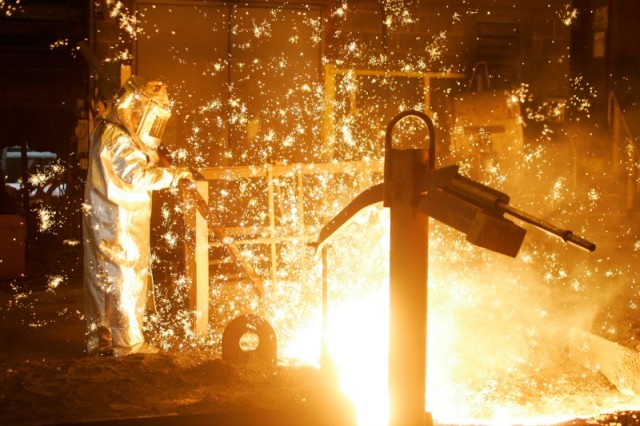US Steel Moves to Right Work State

U. S. Steel is establishing two more plants in Alabama, a Right to Work state. This is an example of another big industry leaving a forced-dues state for the freedom of a Right to Work state, another industry leaving non-right to Work state. James Anderson has the story in Engineering.com.
These investments will directly support U. S. Steel’s ongoing transformation journey,” says President & CEO Mario Longhi. “Together, these projects will enhance our operational flexibility and allow us to serve our customers better, two critical steps in creating shareholder value.”
The EAF facility is part of a larger initiative called The Carnegie Way, which aims to enhance the company’s competitiveness and improve things like operation flexibility and cost structure. Similarly, the tubular coupling facility plays a big role in U.S. Steel’s plan to become a key domestic player in the oil country tubular goods (OCTG) market. The facility will manufacture couplings for all of the company’s premium connections (USS Liberty FJM®, USS-Patriot EBM™ and USS-Patriot TC™) for its customer base in the energy industry. This seems like a questionable time for the company to invest in OCTG products considering the current state of oil prices.
The construction plan has already been authorized by Jeffrey County, which has provided undisclosed economic incentives to U.S. Steel. There’s no doubt these incentives influenced the company’s decision to choose Alabama. Another likely influence is the Right-to-work law that governs many southern states, which prohibits union security agreements. The economic incentives and the Right-to-work legislation, coupled with low operating costs, are making the south a highly competitive alternative for manufacturers to set up shop.
The phenomenon of moving south is anything but new; manufacturers have been relocating to states such as Alabama, Mississippi and Louisiana since the late 1980s. However, it seems as if there’s been a new wave in the last decade.
The construction plan has already been authorized by Jeffrey County, which has provided undisclosed economic incentives to U.S. Steel. There’s no doubt these incentives influenced the company’s decision to choose Alabama. Another likely influence is the Right-to-work law that governs many southern states, which prohibits union security agreements. The economic incentives and the Right-to-work legislation, coupled with low operating costs, are making the south a highly competitive alternative for manufacturers to set up shop.
The phenomenon of moving south is anything but new; manufacturers have been relocating to states such as Alabama, Mississippi and Louisiana since the late 1980s. However, it seems as if there’s been a new wave in the last decade.

